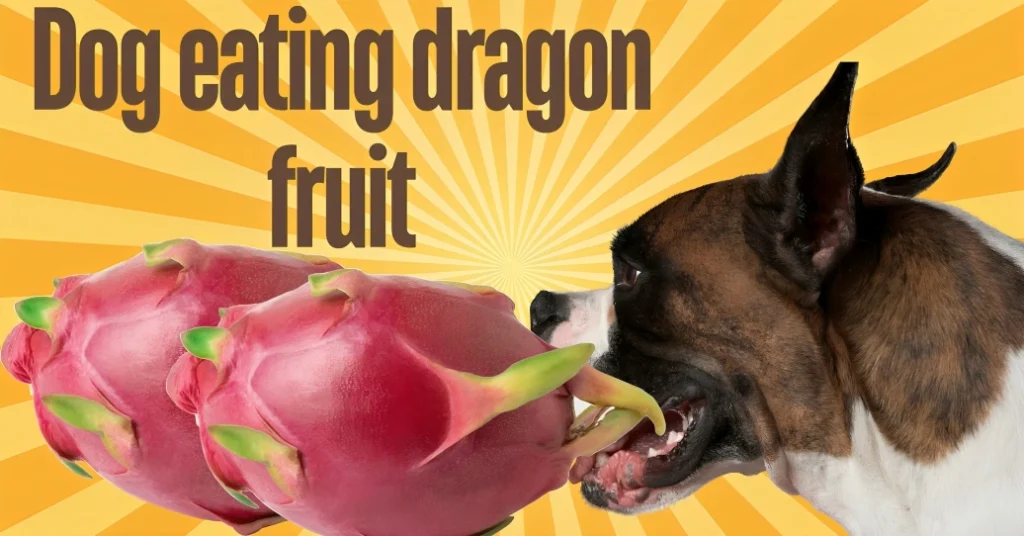Can Dogs Eat Dragon Fruit?
Dragon fruit is a colorful and nutritious tropical fruit that can be a healthy treat for dogs when prepared correctly. It is rich in magnesium, fiber, and antioxidants, which contribute to overall well-being. To safely offer dragon fruit to your canine friend, ensure you remove the skin, as it is not digestible for dogs. Can dogs eat dragon fruit? While dragon fruit can be a tasty and beneficial addition to your dog’s diet, it should be given in moderation. Always consult with your veterinarian before introducing new foods to your dog’s diet to ensure they are suitable and safe for your pet’s specific health needs.
Can Dogs Eat Dragon Fruits?
Dragon fruit can be a healthy and hydrating treat for dogs, thanks to its high water content and beneficial nutrients. This exotic fruit provides valuable fatty acids like omega-6, which support skin health and cell growth, and offers a gentle boost of Vitamin C, even though dogs can produce it naturally.
It’s important to serve dragon fruit in moderation and ensure it doesn’t replace your dog’s primary diet. Introducing this fruit as an occasional treat can be a fun way to diversify your dog’s diet, but always consult your veterinarian before adding new foods to avoid any adverse effects. Properly preparing dragon fruit by removing the skin and offering only small amounts can help your furry friend enjoy this nutritious snack safely.

Is Dragon Fruit Safe for Dogs?
Dragon fruit, also known as pitaya, is a safe treat for dogs when given properly. The fruit’s fleshy interior, which comes in colors like yellow, red, and pink, is both edible and beneficial for dogs. Its small black seeds are also safe, but the tough, spiky skin should be avoided as it can cause digestive issues.
While dragon fruit is not toxic and is low in calories, it should only be introduced in moderation to prevent gastrointestinal upset. Unlike humans, dogs don’t need additional vitamin C since they produce it naturally, so the benefits of dragon fruit are more about offering a low-calorie, tasty snack. Always monitor your dog for any adverse reactions when trying new foods and consult your vet if you have concerns.
How to Feed Your Dog Dragon Fruit
When introducing dragon fruit to your dog’s diet, start by peeling off the bright pink skin, as it is difficult for dogs to digest. Cut the flesh into small, bite-sized pieces to prevent choking, and begin with a modest portion to gauge your dog’s reaction. Monitor your pet closely after they consume the fruit, paying attention to their digestive health and overall well-being. Although dragon fruit is nutritious for humans, with high vitamin C content, dogs do not need this vitamin supplement as they produce it naturally. Therefore, while dragon fruit can be a tasty and low-calorie treat, it should be offered in moderation to avoid issues like weight gain or digestive disturbances.

Potential Benefits
Dragon fruit can be a nutritious and enjoyable treat for dogs when given in moderation. This vibrant tropical fruit is rich in vitamin C, which supports your dog’s immune system and cognitive function. The fatty acids found in dragon fruit, including omega-3 and omega-9, contribute to a healthy, shiny coat, while beta-carotene in certain varieties helps maintain good eye health. However, dragon fruit should not replace a balanced diet; it’s best used as an occasional treat. Always serve it in small, manageable pieces and monitor your dog for any adverse reactions. For a holistic approach to your pet’s health, consider combining dragon fruit with other supplements like salmon oil, which offers additional benefits.
How Can I Safely Give Dragon Fruit To My Dog?
Dragon fruit can be a healthy and enjoyable treat for dogs when served properly. To ensure it’s safe, always peel the tough, leathery skin before offering the fruit to your pet, as it can be difficult for dogs to digest. The flesh and seeds of the dragon fruit are non-toxic and safe for canine consumption, but moderation is key to prevent any digestive issues.
Start by introducing small pieces to your dog and monitor their reaction to ensure they don’t experience any stomach upset. While dragon fruit is beneficial, it should not replace a balanced diet but rather serve as an occasional treat. For a balanced approach, consider mixing the fruit with their regular food and avoid processed versions with added sugars or preservatives.







